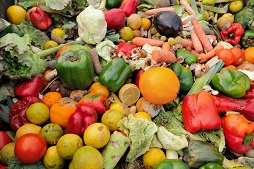A recipe for reducing Europe’s food waste mountain

Related topics
Innovation Societal Challenges Austria Denmark Finland France Germany Greece Hungary Italy Netherlands Sweden United Kingdom Food security, sustainable agriculture and forestry, maritime and martime inland water research and bio-economy Norway Turkeydate: 02/07/2015
Project: Food Use for Social Innovation by Optimi...
acronym: FUSIONS
See also: CORDIS
Some 90 million tonnes of food meant for human consumption is lost along the supply chain in the EU, or about 180 kg per person, according to estimates by the European Commission. This food waste occurs at home, and at every step along the food production and supply chain – from farms to retailers’ shelves.
Something must be done to reduce the waste of resources such as land, water, energy and labour for the production, transport, processing, packaging and storage of all that unused food. With millions of people hungry and undernourished worldwide, the issue is also a moral one.
The EU aims to halve by 2020 the disposal of still-edible food. But efforts to achieve this are hampered by a lack of accurate data on food waste in some EU countries. In others, the data are incomplete or cannot be easily compared.
The EU-funded project FUSIONS aims to provide solutions. In July 2014 the project released recommendations on common standards EU countries could use to more accurately measure the amount, sources, and impacts of food waste.
More accuracy is a step in the right direction. A common standard opens the way for researchers to make comparisons and assess which policies are effective and which are not. As part of the research, FUSIONS is also assessing each country’s food waste reduction measures, and plans to make recommendations on an EU-wide approach by the time the project ends in July 2016.
The recommendations aim to help EU policymakers when they consider changing the rules on food waste and the sustainable use of resources, says project coordinator Toine Timmermans of Food & Biobased Research, part of the Wageningen University and Research centre in the Netherlands.
“Knowing the numbers is fine,” Timmermans adds. “FUSIONS’s goal is to show that reducing food waste really can be done. It is actually not difficult to do something about it. Good policies and better awareness of food waste can help businesses and people to act in a more sustainable way and also save a lot of money.”
Proof in the pudding
Project partners are also co-organising demonstration events to help raise awareness and show how to reduce food waste at home. For example, a lunch on 29 June 2013 fed 6 500 people in Amsterdam, the Netherlands at the ‘DamnFoodWaste’ event.
The free vegetarian curry was made from vegetables that would have been wasted, such as potatoes, carrots, tomatoes and green peppers. The produce had been left on farm fields after harvesting and was collected by young volunteers with farmers’ permission. Some of this food was not of the ‘right’ shape that supermarkets demand, or had been left behind by automated machinery.
Similar events were held in 2014 in Warsaw (Poland), Barcelona (Spain), Thessaloniki (Greece), Brussels (Belgium) and Copenhagen (Denmark). In 2015 the project plans to hold up to six such events, starting with Budapest on 4 June and Rotterdam on 14 June.
FUSIONS is also carrying out pilots on ‘social innovation’ – new collaborations and on-the-ground initiatives that are both social in their ends and in their means to change people’s habits, and practices, for the better.
The project has awarded funding to seven entrepreneurs – mostly young and all highly motivated – to run projects across Europe. One pilot is working with schools in Greece to help parents, young children, educators and cooks reduce food waste, for example.
Another of FUSIONS’s achievements has been to establish a network of researchers, businesses, policymakers and consumer groups to seek ways to understand the issues relating to food waste, such as policies, laws, food labelling, packaging, portion sizes and consumer behaviour. The network currently has over 180 members and includes Europe’s top retailers and food businesses.
Their feedback will help FUSIONS’s partners develop recommendations on EU-wide measures and practices that can help countries reduce food waste. For example, removing VAT from food given to charities would encourage more businesses to donate, says Timmermans.
